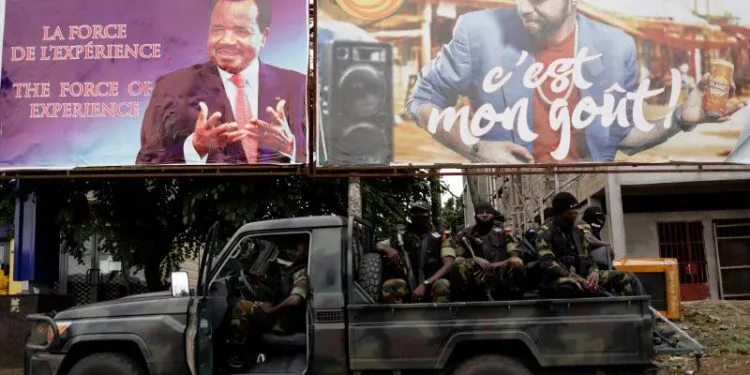The TotalEnergies Africa Cup of Nations (AFCON) Cameroon 2021 unfolds within an atmosphere plagued by socioeconomic and health crisis.
Be that as it may, the AFCON is an opportunity for the world to pay attention to the most neglected conflict in the globe, The Anglophone Crisis.
The African Cup of Nations started in Cameroon on Sunday, January 9, 2022, after experiencing two delays due to the lack of proper preparations on the part of the government of 89-year-old Paul Biya and the other due to the emergence of COVID-19.
Although the stampede at the Olembe Stadium last Monday puts stain on the image of the tournament, it has been the talk of town for its many controversies.
The rise of COVID-19 cases amongst players and some team officials, with Cameroon spared, has raised allegations of a conspiracy hatched by Cameroon to keep the trophy for the 6th time in its footballing history.
The 24-team, 52-game championship in the central African nation is also unfolding within a tense political climate compounded by a bloody conflict in Cameroon’s North West and South West Regions.
AFCON is window for anglophone crisis
AFCON2021 offers a windows for the ventilation of the full-blown insurrection in the two English-speaking regions of Cameroon, where English-speaking separatists opposing the Francophone government have been fighting to form a breakaway state and have since made use of improvised explosive devices and rocket propelled explosives.
The threat to the African Cup is real.
An explosion at the University of Buea located in the Limbe-Buea site of the tournament was a pointer to the dangers of organizing such a soccer get-together within a conflict.
Days after the start of the competition , armed separatists carried out an attack in the neighborhood hosting the Molyko Omnisport Stadium, an official team-training venue injured. Four persons were killed, others injured and a training session interrupted.
As it stands, over 4,000 people have been killed in the violence.
To counter the separatist threats and attacks, the government opted for a heavy military presence in the South West region.
Hardly does one move an inch in Buea and Limbe without coming across a frightfully clad and armed officer of the Rapid Intervention Battalion (BIR), an elite unit of the Cameroonian army.
Cross-border attacks may multiply
While plenty of attention has been turned to secure Limbe and Buea, separatists are warming up to attack Bafoussam, host to some AFCON matches.
On Tuesday, separatist fighters killed a soldier in Galim, in the francophone West Region which shares borders with the restive North West Region.
The attack took place a few hours before Senegal faced Cape Verde in an 8th final duel in nearby Kuekong Stadium.
The Norwegian Refugee Council (NRC) says the Anglophone Crisis is “the most neglected on the planet,” while for the International Crisis Group (ICG), it is “the main security problem” in this Central African country.
Cameroon, which continues to suffer from a political crisis and terror attacks in the north, is subjected to the separatist issue that erupted in late 2016.
The English-speaking minority in this bilingual country feels marginalized and has expressed its need for federalism or separatism through multiple demonstrations.
The conflict has escalated, making the English-speaking area a theatre of violence’s that has resulted in 3,000 deaths and the displacement of more than 730,000 civilians, according to Human Rights Watch (HRW).
A national dialogue that began September 30, 2019, over a year after the arrest of separatist leaders, did not have the presence of all stakeholders, let alone the expected appeasement.
Authorities have repeatedly called on separatists to lay down their arms by promising “full law force” against opponents of the request.
But the crisis continues.
If the government and separatists could have ended the conflict, they would have, according to Arrey Elvis Ntui, a senior Cameroonian expert with the ICG.
“The government and the separatists are pursuing a military strategy, in part because of the government’s reluctance to engage in inclusive talks with these Anglophone groups. What is sorely lacking is a mediation effort that can reduce the mistrust between the parties and bring them to the negotiating table,” he told Anadolu Agency.
The complexity of the crisis stems “in part from the sides fighting each other,” he said, with plans for war while “the international community is making little effort to get them to discuss a political solution.”
But “the major problem is the lack of political will to hold talks, despite prolonged conflict and suffering,” he said.
Let the world take its eyes off AFCON2021 and look at the crisis in the North West and South West Regions of Cameroon.



